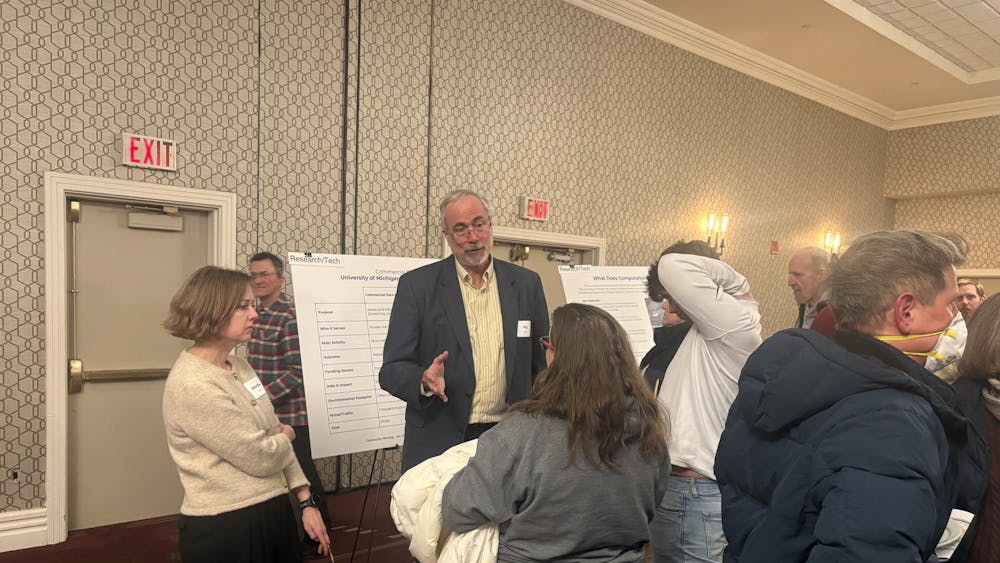New legislation has made Ypsilanti’s medical marijuana dispensaries wary.
“Basically, patient to patient sales are now illegal, and caregivers are only able to distribute medicine to their five registered patients,” said Katie Johnson, manager at the local medical marijuana dispensary Sticky Ypsi, located at 1090 N. Huron River Drive.
She also said the new law is making Sticky Ypsi change the way they conduct transactions with medical marijuana patients.
“It’s made us redo our entire business model,” Johnson said.
The Michigan Supreme Court’s Feb. 8 ruling on the State of Michigan v. McQueen case overruled the Michigan Court of Appeals. The decision subsequently limited dispensaries from distributing marijuana to a vast number of patients.
Johnson also said the new system will be insufficient because there aren’t enough registered caregivers and growers to properly supply all the medical marijuana patients with their prescriptions.
“It’s not morally or ethically correct in the health care system to do that to patients that are sick and in pain,” she said. “It really boils my blood.”
Kaitlyn Wassus, another manager at Sticky Ypsi, said the thought of being shut down or raided is “still nerve-wracking.”
“They are turning it back to an underground operation on the black market,” she said.
Wassus also said Sticky Ypsi, like other dispensaries in Washtenaw County, has stopped taking new patients as a precaution to ensure they stay within the law, even though they have been open less than a year.
“It’s hard to grow without taking on new patients, and we are turning away a lot of people,” she said.
Ypsilanti City Attorney John Barr sent a letter in February to all medical marijuana dispensaries and growing facilities within the city.
The letter stated, “The Supreme Court overruled the Michigan Court of Appeals and held that the sale of marijuana is a permissible medical use, but only under the Michigan Medical Marijuana Act if it is from a properly licensed primary caregiver to his or her specific properly licensed qualifying patient. Any other sale is in violation of the Michigan Public Health Code.”
Jamie Lowell is co-founder of Third Coast Compassion Center on 19 N. Hamilton Street, the first dispensary in the state when the Michigan Medical Marijuana Act was passed in 2008.
Lowell reiterated that the new legislature allows for only some transactions to be immune from illegality even if all participants are registered patients with the state’s program.
“If any patients are going to make transactions, they need to know the criteria and the laws,” Lowell said.
He said the legislature can be very difficult to properly understand, which complicates the situation.
“For anyone to completely understand, they would have had to pay attention to all the intricacies and changes of the laws over the past four years, like I have,” he said.
Lowell said Third Coast Compassion Center has also had to make changes in their everyday business procedures due to the new legislation.
“I believe it’s very politically motivated, but it’s the law of the land now,” he said. “We are trying to make our best case for helping the patients.”
Eastern Michigan University sophomore Jazmyn McKenney said her brother suffers from chronic back pain after a car accident. He asked his doctors for an alternative to prescription pain pills, and they gave him a medical marijuana referral. Because of this, she supports dispensaries and their selling to patients.
“They need someplace that’s legit instead of buying it off the street,” McKenney said.
Gilles Renard, an EMU exchange student from Belgium working toward his master’s degree in computer aided engineering, said it should be completely legal. Renard said he is a non-user of marijuana.
“It’s legal to possess and grow in Belgium. Thirty miles away from my home it is also legal in Holland. I don’t see any problems at all with making it legal,” he said.
But not all EMU students agree that the laws should be loosened.
EMU sophomore Allyse Wuebben is taking prerequisite classes for the nursing program. She said the medical marijuana program and the dispensaries need more regulation.
“I’m not really upset they might get shut down,” she said. “Way too many people are taking advantage of the easy access to the medical cards and abusing the fact they can buy the drug whenever they want with prescriptions that last for a year.”










